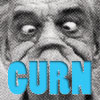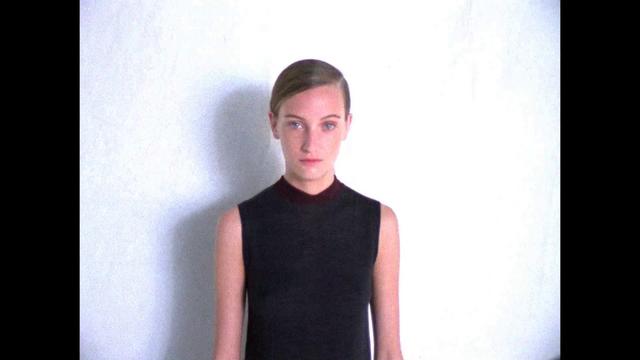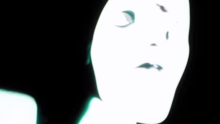Basement 5 were a reggae punk fusion band from London founded in 1978. Their vocalist was Winston Fergus then Don Letts and in 1979 Dennis Morris, a photographer working at Island Records. The drums were finally played by Richard Dudanski who had played in the bands 101ers, Bank of Dresden, Tymon Dogg & The Fools, The Raincoats and Public Image Ltd.. One of their early performances was a support for Public Image Ltd.’s London debut. Their songs reflected the political situation of the time in Great Britain in the era of Margaret Thatcher: youth unemployment, strikes, racism and the poverty of the working class. The band split up in 1980.
CLICK ON IMAGE FOR THEIR MYSPACE
In their short life, the band supported John Lydon’s Public Image Limited (PIL) debut at London’s Rainbow Theatre, performed a number of shows in Portugal and signed to Island Records. The result was the album “1965-1980″ co-produced by the legendary Martin Hannet (Joy Division. Magazine). It became the first and only Basement 5 LP. Long out of print, it was eventually reissued as a partial album along with selected tracks from its original dub mini-LP partner ‘Basement 5 In Dub’.
Morris was kind enough to take out of his busy schedule to conduct an interview with me:
What was it like growing up in London in the 70’s?
Growing up in the seventies looking back was a very inspirational time due to the lack of money and opportunities we had to create our own identity (ie: clothes, find ways to make money..,), we had to be inventive; opportunities were never given, we had to take them! There were very few jobs.
Are there any similarities between taking photographs and writing/performing music?
For me photography / music are all the same. When I write songs/music, I write visually (ie: I picture the song in my head); I am a visual person. When I read, I read visually, the words become images; that’s why I am a very slow reader.
As an A&R rep for Virgin Records you signed The Slits and LKJ who are among the most iconic bands to come out of the UK in the 1980’s. On the surface they are quite different. What did they have in common in your eyes?
I was in fact working with Island Records and my official position was head of Art with A&R capacity. This position came about through Chris Blackwell owner and founder of Island Records who approached me about joining the label. I was reluctant because Island had no one on the label I found interesting. After many meetings, I said I would only join if he let me sign and art directed LKJ and the Slits. He agreed. LKJ for me was the voice of the Youths of Black Britain. His poetry fused with Dennis Bowell’s Reggae beats captures the feelings of Black Britain of the time. The Slits were off the wall. I felt they would inspire other female artists to take up arms (ie instruments).
During the late 70’s punk and reggae came together in a way that was unprecedented. There was an openness about exploring and creating new sounds and mixing cultures. How much of that informed the Basement 5 look and sound?
Basement 5 came through boredom. Bob Marley had died, the Pistols had split, P.I.L was losing direction and for me there was nothing around musically that interested me. So I did what was for me a natural progression, having worked in both music genre and creating images& identities for other musicians. In the case of Basement 5, the look (logo, image…) came before the music. The music was a collage of many influences not just reggae or punk. Not coming from a music background helped to create a unique sound.
As the first black punk rock band you helped break down barriers and influenced later black rock bands like Fishbone and Living Color. As a trailblazer what kind of reception did Basement 5 get from audiences?
The receptions we received were varied…white rock audiences loved us, but black audiences thought we were weird. I remember once playing a gig in Hamburg in a club. The owner booked us having heard about us and assumed that because we were black we must be a reggae band. On the night of the gig, all the local black reggae fans turned up, as soon as we hit the stage and started playing, the place emptied. The owner refused to pay us saying that he booked a reggae band!
Can you share any unusual stories about any Basement 5 shows that were particularly memorable?
Germany was always a great place to play. One particular gig, a riot broke out. Basically I walked on stage with the band, walked up to the mike and this guy spat in my face. I grabbed the mike smashed him across the head, he started bleeding. His friends tried to get on stage, I kicked them off, a huge fight started in the crowd. The gig was canceled and we had to get the police to escort us from the venue.
The Basement 5 LP ‘1965-1980′ was produced by Martin Hannett (noted Joy Division producer) who had a very unorthodox reputation for recording songs in the studio. What was it like to work with him? Any unusual stories you can share about recording the album?
Working with Martin Hannett was a joy, he was truly a genius, rock’s equivalent of Lee Perry. Completely off the wall. We used everything available to get the sounds we wanted. I even did the vocals for Heavy Traffic outside the studio in the street. Anything was possible, he had an open mind, we truly connected. Incidentally the title 1965-1980 was a diary of my life growing up in Britain from 1965-1980.
Is it true that Charlie Charles from The Blockheads played drums in the recording studio and laid down his tracks in one day!
Charlie Charles from the Blockheads did play drums on all the tracks on the album. We had just finished touring with the Blockheads and had become great friends with Charles and Ian Durry. What basically happened was on the first day of recording, our drummer at the time (we had a lots of problems with drummers) completely flipped out. He had a nervous breakdown and walked out of the studio and to this day was never seen again. We were all in shock. Martin came up with the idea about Charlie Charles, I agreed, we made a call and within hours he was in the studio. He not only saved the day but also played some memorable beats. Sadly Charlie Charles is not with us any longer, like Ian Durry truly a great man.
After Basement 5 split up, you went onto form Urban Shakedown. Tell me about that band? Paul Weller signed you to his Respect Records label right?
Paul Weller did sign us to his Respect Label, in fact it was the first release on the label. After Basement 5 split, I worked to create a new sound. I was never truly happy with the bass sound on the album. So I decided to play bass myself with a young drummer named Michael Smith, stage name T. To get my sound, I basically split the sound on stage (ie: two rigs, one giving out bass end, the other top treble).
Your single ‘The Big Bad Wolf’ in 1984 with Urban Shakedown may have been the very first drum and bass song ever! What was the decision to just record bass and drums with horns playing a melody over the track to complement your vocals?
Big Bad Wolf was possibly the first Drum & Bass song, as I said earlier it was my desire to create something new. It was in my head I could hear it and see it.
Do you think the U2 borrowed elements of the Basement 5 look and sound?
U2 took everything from us. We played a few gigs together and we always blew them away. Our guitarist JR always wore a cowboy hat and played a flying V guitar; think of the Edge. Also he had a unique style of playing (rhythm and lead combine); think of the Edge. Bono’s stage antics were a complete copy of me, climbing on the PA, flag waving….There is a saying in Rock: “Beware of the support band!”.
The Basement 5 album captures the dismal years of Thatcher’s reign in the UK and yet the songs have a timeless quality. What’s you take on the current state of affairs around the world?
Bob Marley said “time will tell”. Look at the Basement 5 song “Last White Christmas” change is coming…”. Listen to “No Ball Games” Youth frustration, “Too soon” man’s fascination with space while the earth is dying, “Immigration”. I feel I got it right and it gives me great pleasure to know that there are people like yourself worldwide who feel the same. Thank you for your support. I will continue to create new images and sounds.
Via RockersNYC
 Don't Watch That
Don't Watch That





